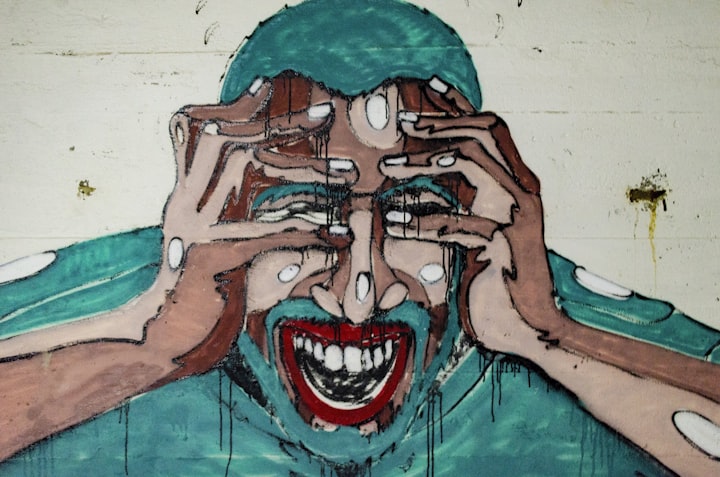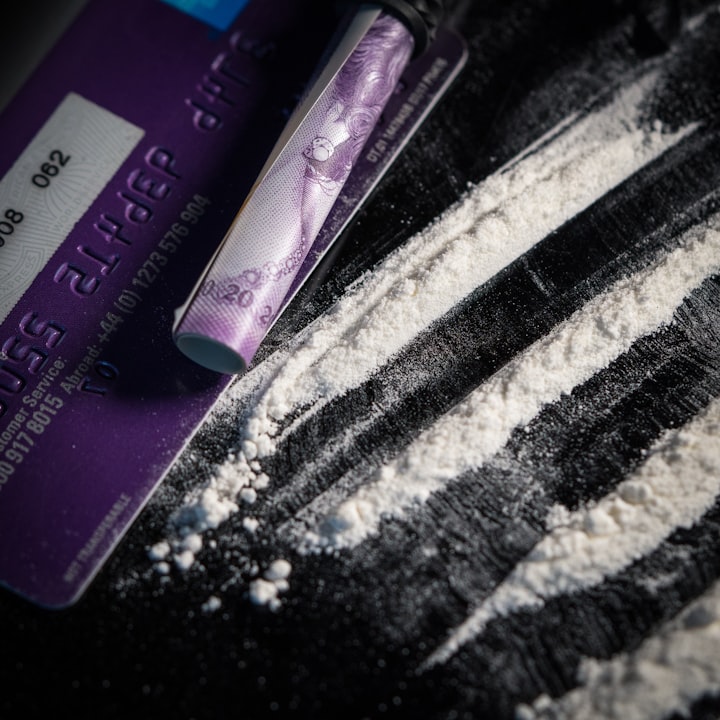
Jermaine Lamarr Cole released his fifth studio album, KOD, appositely, on April 20th, 2018. The title, having three distinct meanings, reveals the work's thrust, the problem that inspired his conversations. Kids on Drugs, King Overdosed, Kill Our Demons. We are dying, he says, before we have lived.
What we listen to plots for us. Stains our experience and shifts lines for us. I choose four outlets for my pain; only three may be considered wise. I write. I read. I engage with music. I medicate.
Jermaine conceptualizes pain as a lack of understanding. The thought being that if you could only understand everything, then you would feel no pain. The barrier to belief is broken in five words: “God must feel no pain.”
Now, I have faith.
There will always be pain. Provided the frontal lobe remains intact and firing, there will be pain. To live is to be in pain.
People think God is life, but they are confused. God is the death of Self. God is absence. God is empty, nothingness as it pertains to our place in existence: “me,” bared and removed. “God is dead!” Nietzsche proclaimed, we did the killing. Reductio ad absurdum, resurrection unlikely. A nagging sense that something greater than ourselves remains is just that: tedium, resulting from an ego that tells us we are next to godliness, just shy of it, made in the exact image of something perfect and divine and impossible.
In November 2017, Donald Trump met with Philippine President Rodrigo Duterte to actualize a months-long masturbatory fascination with each other’s character and policy. After Duterte assumed office in June of 2016, he called for the systematic “neutralization” (read killing) of all drug dealers and addicts. Over an estimated but unrecorded 20,000 have been killed since this demand. Trump praised Duterte’s order in remarks during his campaign, several months before we voted him into the office of president of the United States.
Fallacious logic that dictates the crisis of addiction will be eradicated when there are no more actively using addicts and no one left to peddle (some of) the drugs addicting them is rampant. The addiction crisis has plagued our streets for decades, and the answer has evaded our politicians and lawmakers for just as long. The truth is that we, as a society, don’t know how to support those in need. We are paternalistic, patronizing, and judgmental. We assume that those who struggle with addiction are victims of a moral failing, unable to make better choices or decisions for themselves. Even the language of recovery groups, such as 12-step programs, is rife with disempowering notions and commentary on our “weak will” as humans.
There is an understanding that a higher power is necessary to “kick” bad habits and harmful patterns of behavior. Nowhere in the literature does it say that the individual can overcome their addiction and, ultimately, the pain that ails them. The recovering addict is stripped of a support system that honors their autonomy and allows them to make mistakes while still being successful with their recovery. Killing drug addicts and dealers is a too literal interpretation of Jermaine's approach. A callous, superficial attempt to resolve a profoundly political and social issue. The addict is accountable for their actions. The addict is accountable for the decision to use. The addict is also accountable for the hurt they cause themselves and others while using. Our culture of rugged individualism ensures that the addict will be held fully responsible for their addiction. However, the question of who is culpable for the onset of addiction within our society is simple. We are. Without community, without love (self or other), without affirmation, and without place, the individual becomes an addict—a hollow attempt at filling voids left by a banal existence within a soulless nation.
About the Creator
kp
I am a non-binary, trans-masc writer. I work to dismantle internalized structures of oppression, such as the gender binary, class, and race. My writing is personal but anecdotally points to a larger political picture of systemic injustice.






Comments
There are no comments for this story
Be the first to respond and start the conversation.